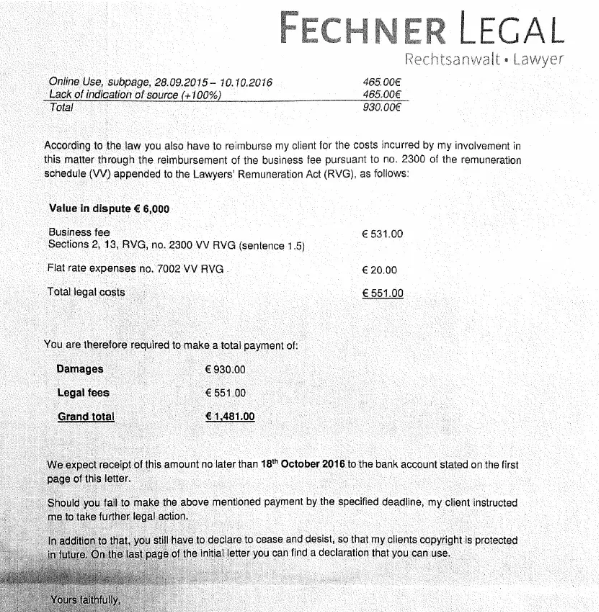A German law firm has threatened to file a criminal complaint against domain name registrar easyDNS. The Canadian registrar refuses to hand over personal details of an allegedly copyright infringing customer without a valid court order, nor is it planning to pay the proposed €1,481 in damages and fees demanded by the law firm.

Over the past several years, the Canadian company easyDNS has come up in several piracy-related news articles.
The company’s domain registrar activities, in particular, have been a topic of discussion. Not least because it serves high-profile customers, including The Pirate Bay.
EasyDNS CEO Mark Jeftovic has always made it very clear that he doesn’t want his company to be a refuge for pirate sites. However, at the same time he is committed to protecting due process.
This became clear a few years ago when the company refused to suspend domain names based on allegations from the City of London Police. This stance was repeated later when the RIAA asked easyDNS to suspend The Pirate Bay’s domain, which it refused to do without a court order.
These examples show that easyDNS is no stranger to legal pressure, but a recent request from a German law firm was a bit over the top, even by easyDNS’ standards.
The company recently received a copyright notice from the German law firm Fechner Legal, ordering easyDNS to take down a URL of one of its clients who allegedly posted a copyright-infringing image. In addition, the notice came with a settlement offer, urging the registrar to pay €1,481 in damages and fees.

The letter, which was initially sent to the wrong email address years ago, came through the postal mail. EasyDNS has no plans to pay up or expose its customer, as the law firm requested. However, it did send a reply asking for a digital copy so it could be forwarded to its customer, as is standard practice.
Instead of sending over the requested digital copy, the law firm replied with a threat. Citing German jurisprudence, attorney Robert Fechner urged easyDNS to hand over the name and email address of the allegedly-infringing customer, or else.
The” or else,” in this case, would come in the form of a criminal complaint.
“If you fail to comply with the law, further proceedings will be to file a criminal complaint against you in order to acquire this information on the basis of § 14 II TMG. In this case, additional damages due to your uncooperative and unlawful behavior will be claimed.” Fechner wrote.
Despite the threat of a criminal complaint, easyDNS still doesn’t plan to hand over the name and email address of its customer. The company’s CEO stresses that it only complies with the law of the country where it’s incorporated, which is Canada.
Simply handing over personal information might violate Canadian privacy law, easyDNS stresses. This means that, if Fechner Legal wants the personal information of the customer in question, it has to obtain a valid court order, subpoena or warrant in the Province of Ontario.
“It’s almost as if Herr Fechner doesn’t understand that Canada is a completely different country than Germany, and thus businesses operating here are subject to Canadian, not German law,” Jeftovic notes.
“We have further advised Herr Fechner that both easyDNS and our lawyers take a dim view of being threatened with a criminal complaint over something like this and we wonder out loud if the German bar association would have anything to say about one of their own abusing their position and misrepresenting the law in this manner,” he adds.
In any case, it’s clear that as a third-party registrar, easyDNS isn’t going to take any action without a proper court order. This means that the allegedly infringing URL remains online for now, just like The Pirate Bay.


















